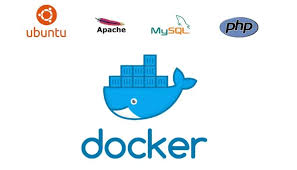In today’s world of software development, ensuring that applications run smoothly across different environments can be a challenge. This is where Docker comes into play, offering a powerful solution that simplifies the installation process, enhances security, and avoids common issues related to differing environments.

At its core, Docker is a platform that allows developers to package their applications into containers. These containers bundle together everything the application needs to run, including the code, libraries, and system tools. Think of it as packing all your essentials into a suitcase before traveling—no matter where you go, you have everything you need right there with you.
Exploring the Benefits of Docker
1- Isolation and Security
One of the biggest advantages of using Docker is the isolation it provides. Each container runs independently from the others, just like having separate rooms in a house. This means that even if something goes wrong inside one container, it doesn’t affect the others. In technical terms, this isolation boosts security, as vulnerabilities in one application are contained within that specific container and can’t spill over to others.
2- Preventing Environment-Related Problems
Have you ever experienced the frustration of using software that works perfectly for others but not on your system? This issue often arises due to differences in the environments where the software is run. For example, a program might work flawlessly in one setting but encounter problems in another due to subtle differences in system configurations. Docker solves this problem by ensuring that the software runs in the exact same environment every time, no matter where it’s installed. This consistency significantly reduces the likelihood of encountering these environment-related issues, leading to a smoother and more reliable experience for you as a customer.
3- Simplifying Installations
One of the standout benefits of Docker is how it simplifies the installation of any system with just a few commands. Whether you’re setting up a complex application or a simple tool, Docker makes the process straightforward and hassle-free. With Docker, you don’t need to worry about complicated configurations or managing multiple dependencies manually—everything you need is packaged neatly into a container that runs consistently across different environments.
Even better, managing your systems with Docker is incredibly easy, making it a much simpler alternative to using Virtual Machines (VMs). With Docker, you can start, stop, and update applications quickly and efficiently, all without the overhead that comes with VMs. If you’re interested in learning more about how Docker compares to VMs, check out our detailed post here.
4- Ease of Upgrades
Upgrading your system with Docker is incredibly simple. When an upgrade is available, all you need to do is follow a few straightforward steps to download and apply the latest version. Docker ensures that the upgrade process is smooth, minimizing any disruption to your system. You don’t have to worry about complex procedures or losing your current setup—It handles everything behind the scenes, making the upgrade as seamless as possible.
5- Ease of Migration
If you need to move your system to a new server or even to the cloud, Docker makes this process easy and stress-free. Because Docker packages your entire system into a single container, you can easily transfer this container to any environment that supports Docker. This means you can move your system without worrying about compatibility issues or complex configurations. It ensures that your system works the same way, no matter where it’s running, making migration a straightforward task.
